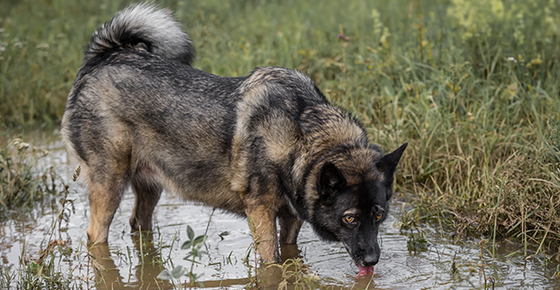
Leptospirosis is a re-emerging disease. This bacterial disease most commonly causes liver and kidney problems in dogs, but can also cause lung, pancreas, and eye symptoms. It is a zoonotic disease, meaning it can be transferred from animals to people, in fact, it is the most common zoonotic disease in the world. Drinking contaminated water is a common mode of transmission for humans and animals. It is present in the urine of infected animals, so bodies of water, food (for instance, if rodents have access), soil, or even the beach (California sea lions carry leptospirosis) can easily be contaminated.
Decades ago, veterinarians routinely vaccinated for this disease in a combination vaccine with distemper, hepatitis, and parvo, until problems with the Lepto part of the vaccine developed. The older vaccine protected against only two types of Lepto, the immunity lasted only about six months, and it was the Lepto portion of the vaccine that was most likely to cause an allergic reaction. More recently, when it became apparent that the disease was becoming more prevalent, a new and better vaccine was developed. The newer vaccines protect against four different types of lepto, the immunity lasts for a year, and allergic reactions are not likely.
Many veterinarians are now recommending that dogs be vaccinated for Leptospirosis if they are at risk due to their lifestyle. So dogs that go on hikes, go to the beach, go to lakes, streams or rivers, or have access to wildlife should be vaccinated. If you have a rodent problem at your house, you should have your dog vaccinated. Discuss your dog’s risk with your veterinarian. There are even some urban areas that have a problem with Lepto.
The first year your dog is vaccinated, it will receive a set of two vaccines, given three weeks apart. The vaccine is given annually there after. Ask your veterinarian if you have any questions.
